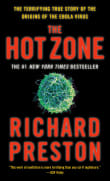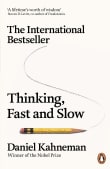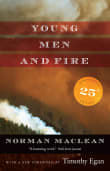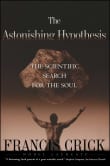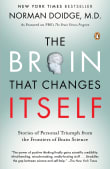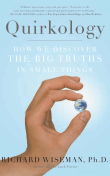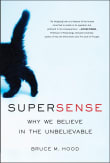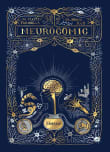The Man Who Mistook His Wife for a Hat And Other Clinical Tales
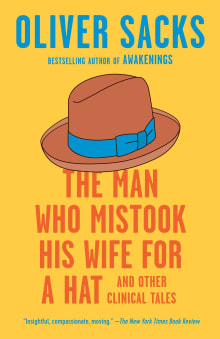
Book description
Celebrating Fifty Years of Picador Books
If a man has lost a leg or an eye, he knows he has lost a leg or an eye; but if he has lost a self - himself - he cannot know it, because he is no longer there to know it.
In…
Why read it?
14 authors picked The Man Who Mistook His Wife for a Hat And Other Clinical Tales as one of their favorite books. Why do they recommend it?

I love Sack’s empathy toward his patients and his commitment to telling a different and highly unique narrative about the human experience. His classic collection of essays is not about intelligence, but each patient he writes about knows and understands the world differently than what is considered normal.
Sacks makes room for the challenges and brilliance of all ways of being in the world.
From Pepper's list on exploring what it means to be smart.

I was simply stunned by this book. Dr. Sacks, a neurologist, drew me into the inner mysteries of the brain by describing the amazing lives and characters of some his most bizarrely afflicted patients. I was delighted to see how some of them overcame or coped with their afflictions, and I finished the book with an indescribable feeling of the magical alchemy of science and story to reveal our deepest truths.
From Dean-David's list on books by or about doctors that focus on our shared humanity.

The insights of this famed author and neurologist continue to fascinate readers who pick up any of his writings. I admire his ability to show the influence of an unusual medical condition on a patient and simultaneously explore the biological mystery behind the symptoms and signs.
From Richard's list on medical mysteries health impact expert solvers.
If you love The Man Who Mistook His Wife for a Hat And Other Clinical Tales...

Every time I revisit Sacks, especially this book, I am blown away anew at people’s ability to create meaning and value in the face of severe cognitive disability.
A man’s capacity to categorize objects is so impaired that when he moves to leave the room, he mistakenly reaches for his wife’s head instead of his hat. How can he even get through the day? With the help of familiar routines, his loving spouse, and music.
A “lost mariner” can’t retain any new information longer than a few minutes and still thinks he’s living decades ago, but he finds meaning in…
From Eric's list on blow your mind about the weirdness of the world.

Fascinating and illuminating essays on the foibles of the human mind, written by a thoughtful neuroscientist and poetic observer of the human condition.
Oliver Sacks was an influential thinker and writer who chronicled psychological and medical mysteries with a self-critical eye trained on the science profession. He makes us feel how strange is the human mind and its ways of grasping the real world.
From Ted's list on sizzling science books that simplify.

The Man Who Mistook His Wife for a Hat is a classic of popular neuroscience writing, and Oliver Sacks is one of the best science writers to ever do it.
This book really was the prototype for my book, as it is a collection of unusual neurological disorders and descriptions of the patients they affect. But of course, Sacks does it better than I ever could. He describes these cases as a series of captivating stories, each of which explains different aspects of brain function as well as helps you to appreciate the human side of neurology.
From Marc's list on learning about your brain.
If you love Oliver Sacks...

Emo Phillips once said, “I used to think that the brain was the most wonderful organ in my body. Then I realized who was telling me this.” But the brain is fascinating, especially when things start going wrong. Oliver Sacks was a brilliant neurologist who wrote about the cases he’d investigated, including a man who was convinced he had an alien leg, a woman who was unable to perceive anything to her left, and a man who was unable to form new memories. The tales are heartbreaking and fascinating and show us the power of the brain and the danger…
From Jon's list on that are relentlessly twisted.

In these accounts of strange neurological misfires, Sacks shows how unreliable we can be as narrators of our own lives. The examples are extreme, sure, but they question the foundations of our certainty about the world and ourselves. Ordinarily, our senses make sense of the flux, label it and archive it for future reference; when the wires get crossed, we see hints of the essential changeableness of things and of the fictional self that tries to tame them. The book is a guided tour of what Sacks call our cerebral habitat: “Forcing or finding order in an imagined chaos.”
From Richard's list on meaning and mutability.

How could anyone confuse his own wife with a hat? This famous story of the effects of brain damage is beautifully, and movingly, described by Sacks, along with many other extraordinary cases. What is it like to have lost your memory, to think your own leg does not belong to you, to have a heightened sense of smell or extraordinary mathematical abilities? I rarely read a book twice but have returned to some of these cases many times. Just thinking about how these people experience the world broadens my ideas of what it means to be conscious. And consciousness, for…
From Susan's list on weird experiences.
If you love The Man Who Mistook His Wife for a Hat And Other Clinical Tales...

This is a classic that never gets old. The late Oliver Sacks shares stories from his clinical practice about patients who have experienced inexplicable brain disorders that caused memory loss, failure to recognize friends and family, create involuntary body movements or cause some to shout obscenities. Written with clarity and compassion.
From Kevin's list on neuroscience for non-scientists.
If you love The Man Who Mistook His Wife for a Hat And Other Clinical Tales...
Want books like The Man Who Mistook His Wife for a Hat And Other Clinical Tales?
Our community of 12,000+ authors has personally recommended 100 books like The Man Who Mistook His Wife for a Hat And Other Clinical Tales.
Browse books like The Man Who Mistook His Wife for a Hat And Other Clinical Tales




